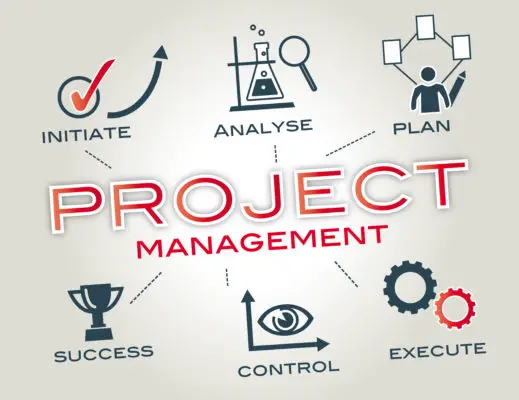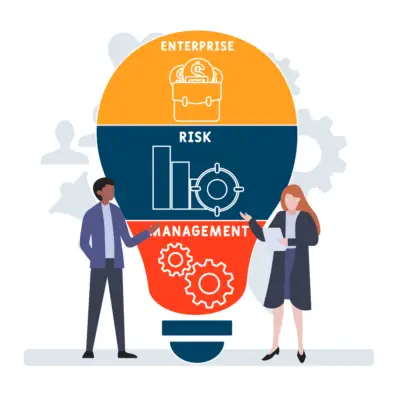Bursting onto the career scene with much promise and potential, the role of an associate in project management is vital in any successful business operation. An associate in project management utilizes technical skills, strategic perspectives, and unflagging dedication to advance organizational success through successful project completion.
As the business world keeps changing, project management responsibilities also grow. Understanding this role, its diverse responsibilities, and essential qualifications will provide you with a comprehensive insight into this career path.
Furthermore, exploring emerging future trends will reveal how this position is continually morphing to accommodate shifting industry needs and technological advancements.
Understanding the Role of an Associate in Project Management
Embracing Innovation: The Pivotal Role of the Associate in Project Management
Firstly, let’s not underestimate the power of position. The title may seem innocuous enough, but an Associate in Project Management holds significant responsibility for organizing workflows, providing feedback and findings, and ensuring project objectives are navigated efficiently and effectively.
They are the driving force behind the scenes, their continuous efforts largely shielded from the limelight. Yet, their role is indispensable to entrepreneurial success across various industries. Indeed, we’ll delve into why their role is not only significant but instrumental in hitting project goals.
Projects, in essence, are the lifeblood of innovation. They are the concrete manifestations of forward-thinking ideas, drawing us relentlessly towards an intangible future.
Yet, managing such innovation isn’t just about discovering the next big thing – it inherently involves the complex task of balancing creative maneuverability with the rigidity of structures, systems, and protocols.
This is where an associate in project management steps in. Their role focuses on mastering the art of this delicate balancing act, taking creativity and turning it into a successful, navigable business project.
They devote their skills to aligning brilliant ideas with the stark reality of what can feasibly be achieved within a given timeframe and budget constraints.
Equipped with an in-depth understanding of business operations and workflows, they are a pivotal reason why projects transition from concept to completion. They harness their extensive project life-cycle knowledge, which is both a science and an art, to streamline processes and ensure that disruption is minimized while productivity is enhanced.
An associate in project management also plays an undeniably crucial role in negotiation and communication. They liaise between different stakeholders – executives, team leaders, software developers, marketers, financial backers – you name it.
They mediate varied perspectives, consolidate different visions, and translate everything into a unified operational plan. They are the glue that binds together the collective brainpower of countless individuals, each vying to realize their unique insights.
But an associate’s role not only spans the logistical realm. They also directly influence a project’s financial prospects and deliverables. Their daily responsibilities demand nimble financial acumen to manage costs and ensure resources are deployed judiciously.
Moreover, they are the driving catalyst behind achieving set deliverables. Their due diligence ensures that each phase of the project aligns with the intended goals and, on a larger scale, the company’s strategic direction.
In real terms, the Associate in Project Management is the unsung hero of the corporate world, and their role is becoming even more significant as we surge forward in this fast-paced, innovation-driven era.
Understanding their position should inspire businesses to invest in empowering these pivotal players on their teams. After all, recognizing and nurturing this strategic role could very well separate the good organizations from the great, the followers from the industry leaders. Without a shadow of doubt, their role is instrumental in shaping the future of business and society.
And so, we ask again, “What’s in a title?” Perhaps the answer is not so simple after all. The Associate in Project Management – a title bearing the weight of innovation, negotiation, and realization.
They are the custodians of successful execution, the unsung heroes of corporate success. So, ladies and gentlemen, let’s not only acknowledge but celebrate their pivotal role in driving us towards a more innovative and prosperous future.

Essential Skills and Qualifications for an Associate in Project Management
Capturing the Essentials: Project Management Associate Skills
At the forefront of reshaping the entrepreneurial landscape is a valuable yet often under-appreciated role: the Associate in Project Management.
Every aspiring associate knows the intricacies of the role – the need for financial acumen, negotiation skills, and communication prowess. But it’s time to delve deeper and explore what truly sets the successful associates apart.
First and foremost, a comprehensive understanding of data analytics stands tall in the list of must-have skills. Interpreting complex data sets is not just for data scientists anymore.
In our digital age, the game of numbers transcends industries, trickling its importance down to project management. Associates who know how to extract actionable insights from raw data jumpstart their projects while steering clear of unforeseen obstacles.
Next up is adaptability. With today’s unpredictable business landscape, a rigid mindset is a straight path to failure. Successful associates don’t fear the unknown, they embrace it.
These professionals must morph with changing project parameters, shifting stakeholder needs, and fluctuating market trends. An adjustable work style and a resilient spirit play an instrumental role in propelling their projects toward success.
Moreover, having a sharp eye for quality constitutes an irreplaceable asset. Associates’ integral role in maintaining high-calibre deliverables cannot be overstated.
This demands a deep knowledge of quality management methods and tools. These specialists are instrumental in instituting standards, tracking performance, and rectifying shortcomings, ultimately defining the final project output.
Riding on the same wave, risk management skill is essential. Project management associates need to foresee potential pitfalls and effectually create contingency plans.
Their risk identification, assessment, and mitigation expertise fortifies the project against adversity and safeguards the organization’s resources.
In addition to the aforementioned technical skills, emotional intelligence is equally essential. Associates work in a high-stakes environment brimming with diverse personalities and contrasting viewpoints.
Empathy, conflict resolution, and the ability to inspire and motivate teams are vital skills in their arsenal. They harbor an encouraging environment that fosters collaboration and boosts team productivity.
Lastly, an absolute mastery of time management seals the deal. Associates juggle multiple tasks, tight deadlines, and complex deliverables. The ones who accomplish this artfully, without compromising deliverable quality or team morale, stamp their mark of excellence on the project.
In a nutshell, honing these skills can be the difference between an ordinary and a high-performing Associate in Project Management. Any aspiring associate aiming for the stars should regard these traits as non-negotiable.
Invest in these skills, the returns are more than just career advancement; it’s a gateway to becoming an influencing change-maker in the business world.

Innovation and Future Trends in Project Management
Maximizing Project Management: The Untapped Power of Data and Emotional Intelligence
If you’ve been paying attention to the business world, you know how we’re caught in the throes of a digital revolution, a trend further accelerated by the global pandemic. This reality is reflected strongly in project management, opening the floodgates to data analytics as a crucial area of focus.
The importance of data analytics in this space can’t be overstated. The ability to decode, assess, and draw valid conclusions from raw data is revolutionizing how we approach project management.
Data-driven insights have become the bedrock of strategic decision-making, furnishing us with key metrics on project performance, consumer behavior, market trends, and more. The savvy associate leverages these insights, maximizing the potential for exponential growth.
In a rapidly evolving business landscape, adaptability is non-negotiable. The project management sphere is not immune to this demand.
Innovative associates navigate the variables of their projects with seemingly innate agility, shifting strategies as needed, pivoting to embrace new methodologies, and always keeping their sights on the end goal.
Adaptability is a survival skill in the age of digital transformation, artificial intelligence, and disruptive technologies.
Spotting possible pitfalls and defusing them before they escalate is crucial in project management. A risk management expert isn’t just a watchman; they’re the sentry who ensures unforeseen challenges don’t derail projects.
These associates contribute to successful projects by analyzing risks and devising strategies to avoid them.
The dynamics of project management demand clear-headed decision-making and the aptitude for garnering trust among the team. Enter emotional intelligence.
When associates exhibit high emotional intelligence, they navigate interpersonal relationships judiciously and empathetically. This translates to effective communication, better team morale, and lower levels of conflict, culminating in successful outcomes.
With the increasing pace of the business world, every minute counts. The discipline of time management takes on an entirely new dimension in project management.
Although technology has sandblasted many time barriers in our lives, using it effectively remains a significant challenge. The adroit associate melds technology and task management into a powerful productivity engine, driving projects from inception to completion ruthlessly.
Conclusively, the future of project management is hinged on the perceptive associate who couples data mastery with emotional intelligence and adaptability, steers the project with sharp risk and time management skills, and above all, provides value.
The key to unlocking the full potential of project management lies in fostering these elemental competencies, propelling businesses towards uncharted heights of success.

Armed with a rich understanding of the role of an associate in project management, the essential skills, qualifications, and a thrilling glimpse into future trends, a more vibrant picture of this career path emerges.
It offers promising possibilities filled with opportunities for innovation, evolution, and significant impact. The steadfast march of technology and a perpetual shift in methodologies present a dynamic environment for associates in project management.
Adapting to this flux, fresh perspectives and innovative solutions become the key to surviving and thriving in this fascinating role. As future project managers, associates are the visionaries who will architect our tomorrow.

Chris Ekai is a Risk Management expert with over 10 years of experience in the field. He has a Master’s(MSc) degree in Risk Management from University of Portsmouth and is a CPA and Finance professional. He currently works as a Content Manager at Risk Publishing, writing about Enterprise Risk Management, Business Continuity Management and Project Management.

